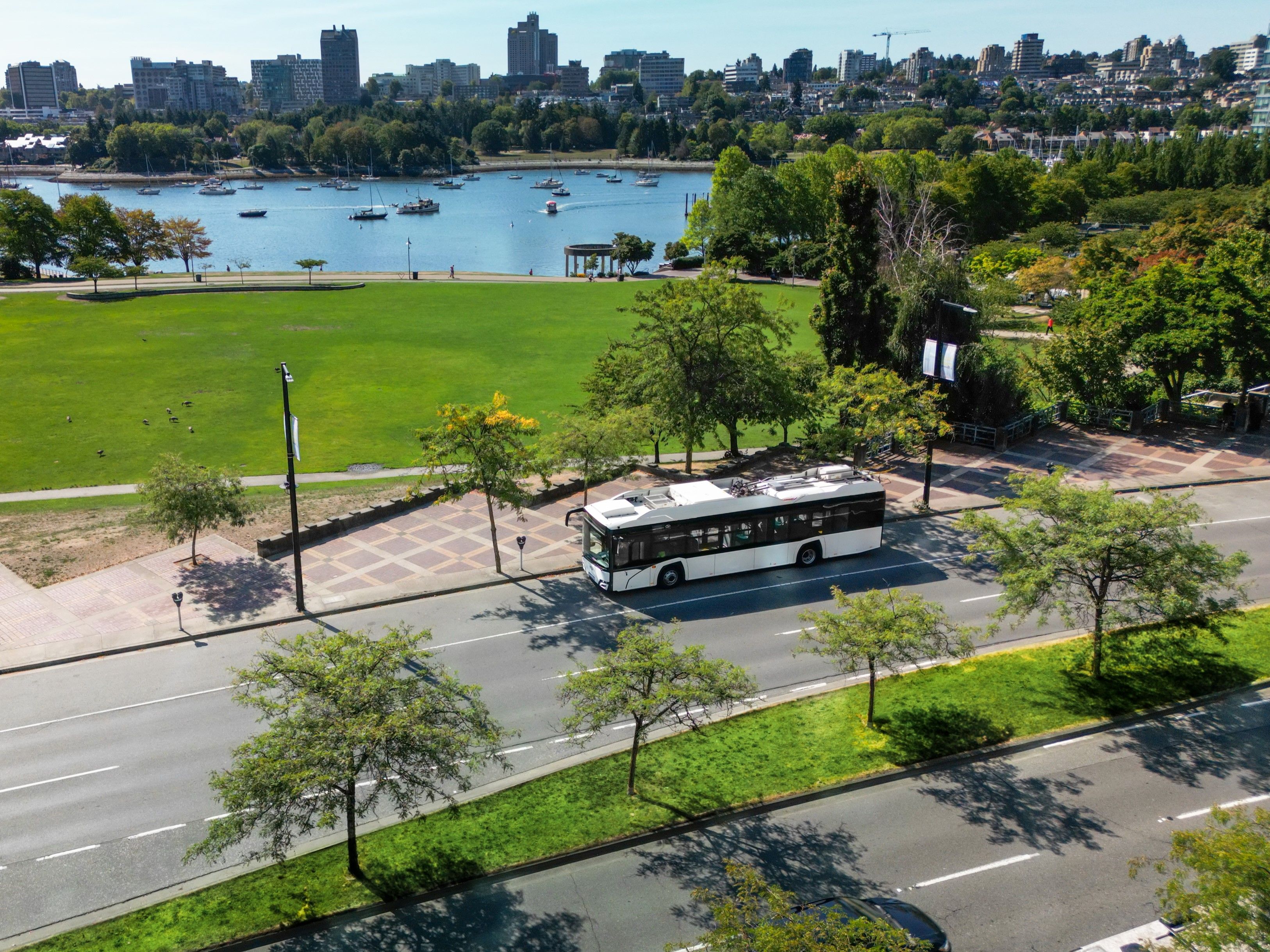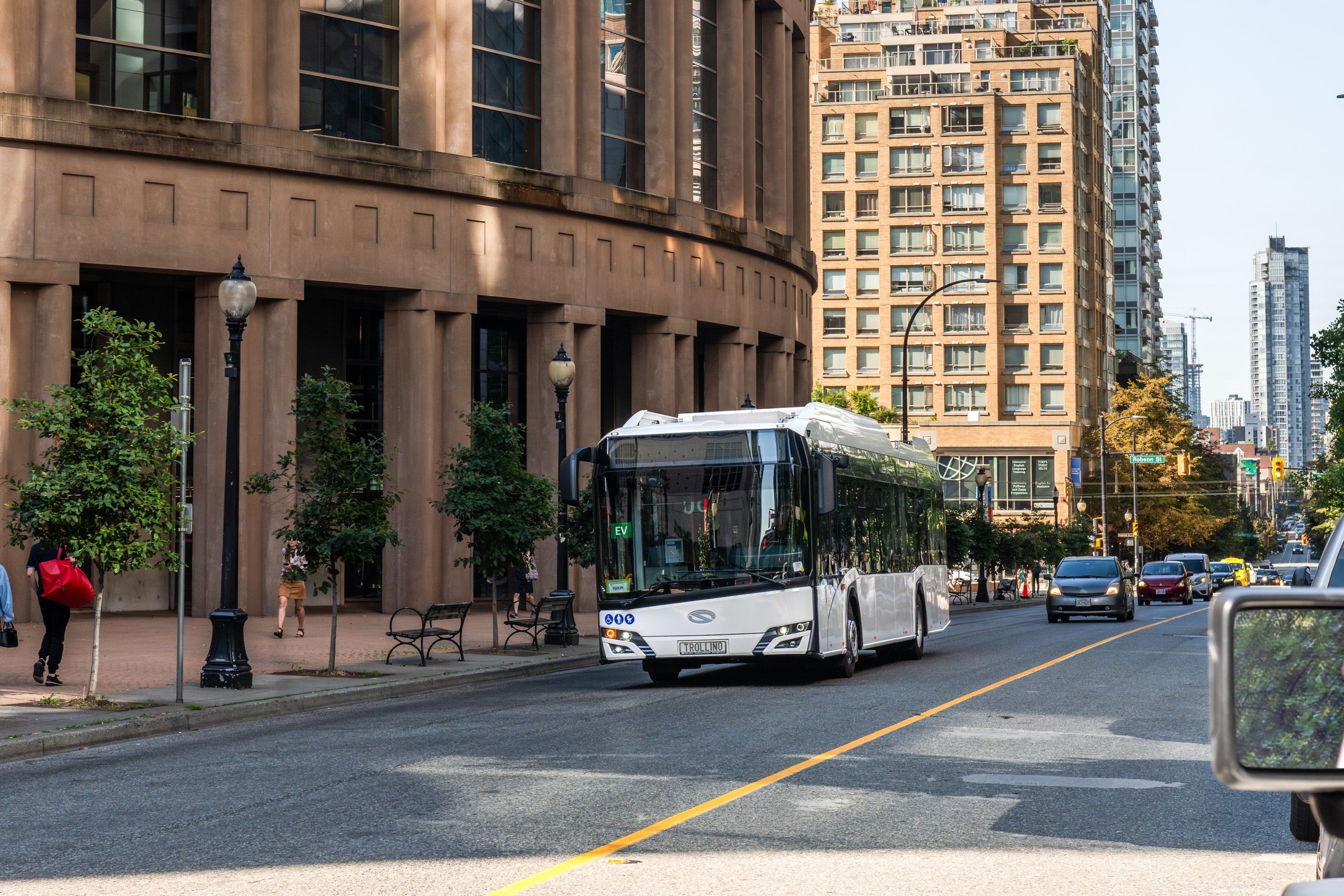TransLink, the Vancouver transportation network, has selected Solaris for the supply of 107 trolleybuses worth approximately €120 million, with options to increase the number of units.

At the end of last year, Solaris announced that it had won its first contract in the United States to supply electric buses to King County Metro in Seattle. This marked the achievement of one of the priority objectives of the CAF Group's 2026 Strategic Plan for the bus business: to enter the North American market with a unique value proposition for zero-emission urban buses.
The newly secured contract with the City of Vancouver, Canada, further reinforces the achievement of this milestone. The agreement with TransLink covers the supply of 107 12-metre trolleybuses as a base order, with options for up to 201 additional 12-metre units and up to 204 additional 18-metre articulated units. The implementation of these options would make this one of the company's largest projects. Under the terms of the contract, the first deliveries are scheduled for the second half of 2026 and will continue through 2027.
It is important to note that TransLink is the company responsible for the regional transportation network in the Vancouver metropolitan area, British Columbia, Canada. This network includes various modes of transport such as bus and trolleybus services, the SkyTrain rapid transit system, the West Coast Express commuter rail line and the SeaBus ferry service.

The penetration of zero-emission vehicles in the North American market is currently relatively low, but growth prospects for this type of vehicles are strong, with double-digit increases expected by 2030. In this context, Solaris is actively pursuing several opportunities and open tenders for both buses and trolleybuses, which are expected to come to fruition in the coming months.
This latest move in Solaris's geographical expansion builds on its current business success in Europe, where it has delivered more than 5,500 zero-emission vehicles (electric buses, hydrogen buses and trolleybuses) and holds a leading position. This is evidenced by its current backlog, which exceeds 1,600 vehicles by the end of 2024. Of these, 92% are zero or low emission. This backlog points to a year of continued growth and increasing profitability, driven by both the high volume of expected deliveries and the product mix, which is predominantly zero-emission buses.
 .
.